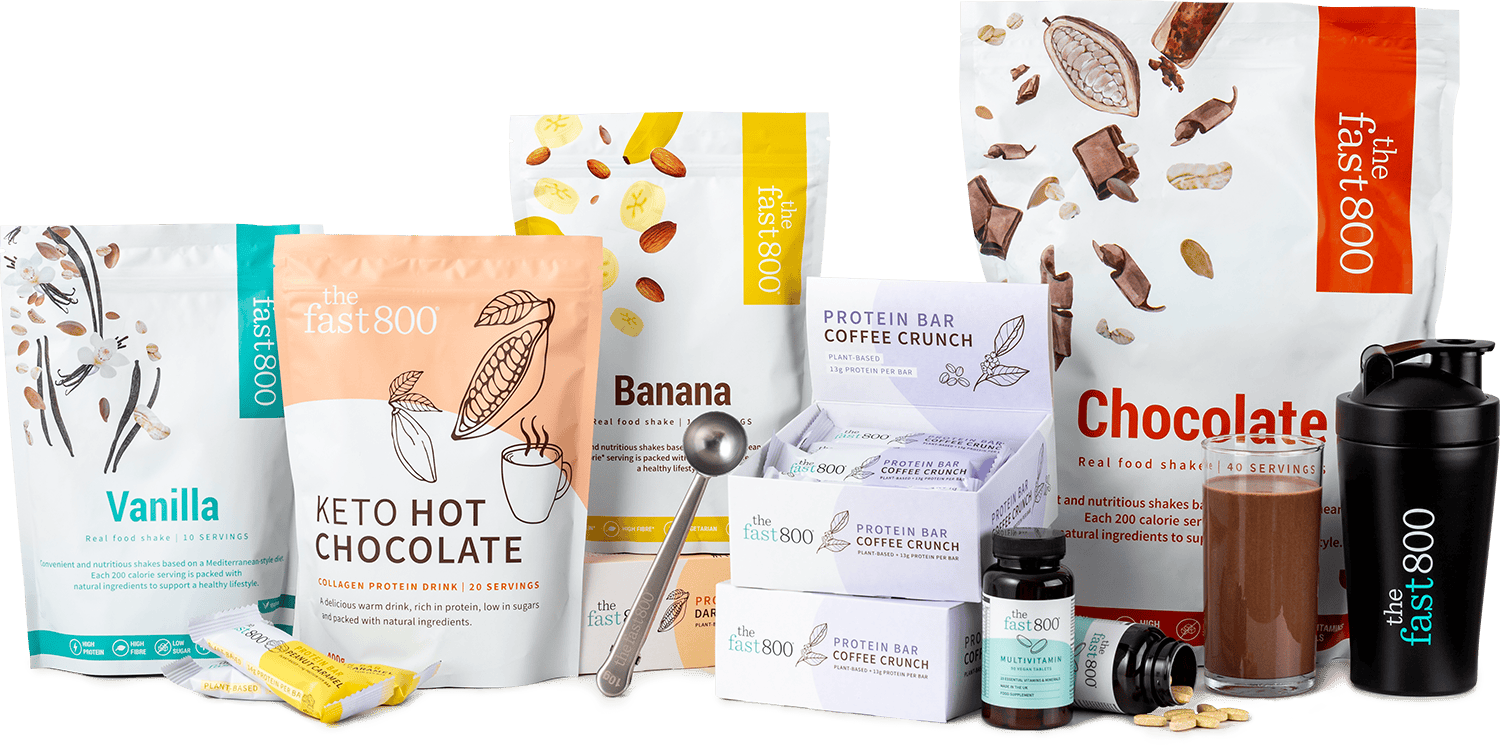PCOS and Insulin Resistance: The Link
For some Polycystic Ovary Syndrome (PCOS) sufferers, the condition can feel like a life sentence. Yet for many women, with the right lifestyle choices, it does not have to be that way.
PCOS is a common condition, often starting in the teens, where a woman’s hormone levels are out of balance, with increased androgen levels. The resulting imbalance causes irregular periods or no periods at all, making it harder to get pregnant. Symptoms may also include increased facial and body hair and oily skin with acne.
It can vary form very mild to severe symptoms and is often linked to being overweight and having an increased tendency to develop raised blood sugars in the form of metabolic syndrome (insulin resistance) or type 2 diabetes.
Health impacts of PCOS
Insulin resistance is present in 30 per cent of non-obese sufferers and 75 percent of those who are obese.1 And while the physical origins of insulin resistance in PCOS are complex, its impact upon health is clear enough.
1. Raised circulating insulin (hyperinsulinaemia)
Because insulin is necessary to transport glucose into muscle cells, a body that is insulin-resistant will, in compensation, produce excessively high levels of insulin.
Raising circulating insulin has an inflammatory effect, promoting atherosclerosis (plaque in the arteries), elevated cholesterol and triglycerides. As it places insulin receptors under chronic stimulation, this also feeds the vicious cycle of insulin resistance itself.
2. Uncontrollable appetite
When the insulin receptors in your brain are working properly, appetite cuts out as soon as enough energy has gone in. In a state of insulin resistance, however, this circuit fails: Even though you have taken in more than enough calories, your brain still sends out signals for more food. You eat more, your blood sugar rises further, more insulin pours out, and the cells become even more insulin-resistant.
3. Visceral fat
All the excess glucose (sugar) in your blood has to go somewhere. As well as allowing glucose to be stored in muscles, insulin also converts excess glucose into fat. Eventually these fat cells become insulin-resistant, and sufferers often start to put on weight.
Fat begins to infiltrate your liver and pancreas.
This threshold varies from person to person – it is a personal fat threshold. Its variability is the reason why some people become type 2 diabetic without becoming fat. Once reached, however, it wreaks havoc with your insulin production, further upsetting your appetite and blood sugar. The vicious circle is given yet another spin.
4. Cardiovascular disease
The metabolic syndrome – a cluster of insulin resistance, raised cholesterol, high blood pressure and obesity – is a precursor to cardiovascular disease. It is also seen two to three times more commonly in women with PCOS.2
5. Type 2 diabetes
As the cycle of insulin resistance spirals out of control, the body eventually loses its ability to regulate blood sugar, leading to type 2 diabetes. The condition, which is ten times more prevalent in PCOS sufferers than in the general population,2 brings with it a greatly increased risk of many other diseases, including loss of sexual function (in women as well as men), eyesight, kidney function and cognition.
6. Masculinisation and loss of fertility
Increasingly, research suggests that raised testosterone is both a cause and an effect of the condition, powering a vicious cycle of its own.
The impact of this on a female body can be devastating. As well as causing body hair, thinning of head hair and bad skin, raised testosterone also disrupts ovulation. Many women with PCOS report irregular or absent periods. If you suffer from PCOS, and particularly if you are overweight, you are also more likely to have difficulty conceiving.
6. Psychological illness
It can hardly come as a surprise to learn then that women with PCOS often report unhappiness. In a study of 440 women with the condition, researchers found that 80 per cent reported a lower quality of life, with depression as the largest contributing factor.3 Women with PCOS are also three to four times more likely to suffer from an eating disorder.4
Medical understanding of PCOS is changing
As medical understanding of the condition advances, clinicians are getting better at spotting and treating insulin resistance as its core driver.
Even so, sufferers give accounts of consultants who have shrugged off their misery, with the view that PCOS is only a serious issue when it interferes with fertility. Or of GPs who become exasperated when standard healthy eating advice fails to make a dent in the weight gain.
Too many clinicians, likewise, give little thought to the links between PCOS and depression, and between PCOS and eating disorders. Anti-depressants and counselling certainly have their place in the management of psychological illness, but without treating the hormone storm that has brought chaos to a woman’s life, her state of mind is unlikely to improve.
Control your insulin response, control your PCOS
In one respect, however, PCOS sufferers are extremely lucky. Because insulin resistance drives PCOS, restoring insulin sensitivity can bring your body back under control. And restoring insulin sensitivity is something that you can do by yourself. Here’s how.
1. Cut out refined sugar and refined carbohydrates
Each time you eat sugar or refined carbohydrates, your blood glucose spikes, and with it, your insulin levels. Even in the absence of PCOS, this is bad news. In the presence of PCOS, though, the effects are, as we have seen, even worse.
Cutting out sugar and refined carbohydrates is the first and most important step back to health. Instead of white rice and bread, eat whole, unprocessed grains like whole oats, buckwheat, barley, brown rice and quinoa, and only in moderate quantities.
2. Switch to a healthy, Mediterranean-style diet
Most of us have spent a lifetime relying on sugar and processed carbs to supply comfort and reward, and to enjoy with friends. These are basic psychological needs, and unless they are met in a different way, the decision to cut out sugar will last only until the next moment of stress.
For this reason, it is essential to learn to enjoy a healthy, Mediterranean-style diet. This means a diet that features plenty of healthy fats as well as fresh fruits and vegetables, and good levels of protein.
3. Ensure you have an adequate intake of omega-3 oils
A growing body of scientific evidence shows that omega-3 oils can significantly alleviate the symptoms of PCOS.1
Omega-3 oils come in three different forms: ALA, EPA and DHA. DHA, which is present in foods of marine origin, particularly oily fish, is biologically the most powerful variety. Non-vegetarians should try to eat two to three servings of oily fish each week; for vegetarians and vegans, seaweed is a source of omega-3.
4. Exercise
Have you ever wondered why sugary snacks often seem more tempting before exercising than afterwards?
When you find yourself opting for a healthier lunch after a workout, you are feeling the insulin-sensitising effects of physical activity. Muscles that work harder than usual take up more glucose than usual, and in so doing, activate their insulin receptors without the stimulus of extra insulin. This helps to restore insulin sensitivity, putting you back on the path to health.
A combination of cardio and resistance sessions will remodel your appetite from the first workout onwards. Incidental exercise, too, is important: climbing the stairs rather than taking the lift; walking rather than taking the car; taking five-minute breaks from sitting at your desk each hour.
5. Support yourself psychologically
As any PCOS sufferer will readily attest, living with the condition can make every day a struggle. Working on stress management techniques can make the difference between handling pressure in a healthy way, or doubling down on habits that may have driven the illness for years.
At The Fast 800 we understand that weight loss happens in the real world, not on a chart on the wall. To work it has to give you the strength to get through the harder days, and to recover when you relapse. This is why we focus on practical and effective mindfulness techniques, and also offer peer-to-peer mentoring through our active community forum.
PCOS and diet: The five-minute take
Driven by twin cycles of testosterone excess and insulin resistance, PCOS can be misery on wheels. Its effects include:
- Raised insulin
- Uncontrollable appetite
- Visceral fat
- Cardiovascular disease
- Type 2 diabetes
- Masculinisation
- Loss of fertility
- Depression
- Binge-eating
It does not have to be that way, however. With these five steps, you can put the cycle into reverse:
- Cut out sugar and refined carbohydrates
- Switch to a Mediterranean-style diet
- Keep an adequate intake of omega-3 rich foods
- Exercise regularly
- Avoid snacking
Recovery is achievable
Remember a time, before adolescence, when PCOS had not yet made its appearance? When weight problems were for other people, and food was a friend? The Fast 800 can help to bring you back there. To find out more, contact us today.
Consult your healthcare professional before beginning any new diet or fitness regime.
Salek, M., Clark, C., Taghizadeh, M., et al (2019). N-3 fatty acids as preventive and therapeutic agents in attenuating PCOS complications. EXCLI journal, 18, 558–575. doi:10.17179/excli2019-1534, available at https://www.ncbi.nlm.nih.gov/pmc/articles/PMC6785778/
Kumar and Clark 2009, ‘Clinical Medicine’ (7th ed.), Saunders
Dupont, J., & Scaramuzzi, R. J. (2016). Insulin signalling and glucose transport in the ovary and ovarian function during the ovarian cycle. The Biochemical journal, 473(11), 1483–1501. doi:10.1042/BCJ20160124, available at https://www.ncbi.nlm.nih.gov/pmc/articles/PMC4888492/?log$=activity
Lee, I., Cooney, L.G. et al (2019). Increased odds of disordered eating in polycystic ovary syndrome: a systematic review and meta-analysis. Eat Weight Disord. 2019 Oct;24(5):787-797. doi: 10.1007/ s40519-018-0533-y, available at https://www.ncbi.nlm.nih.gov/pubmed/29947018











